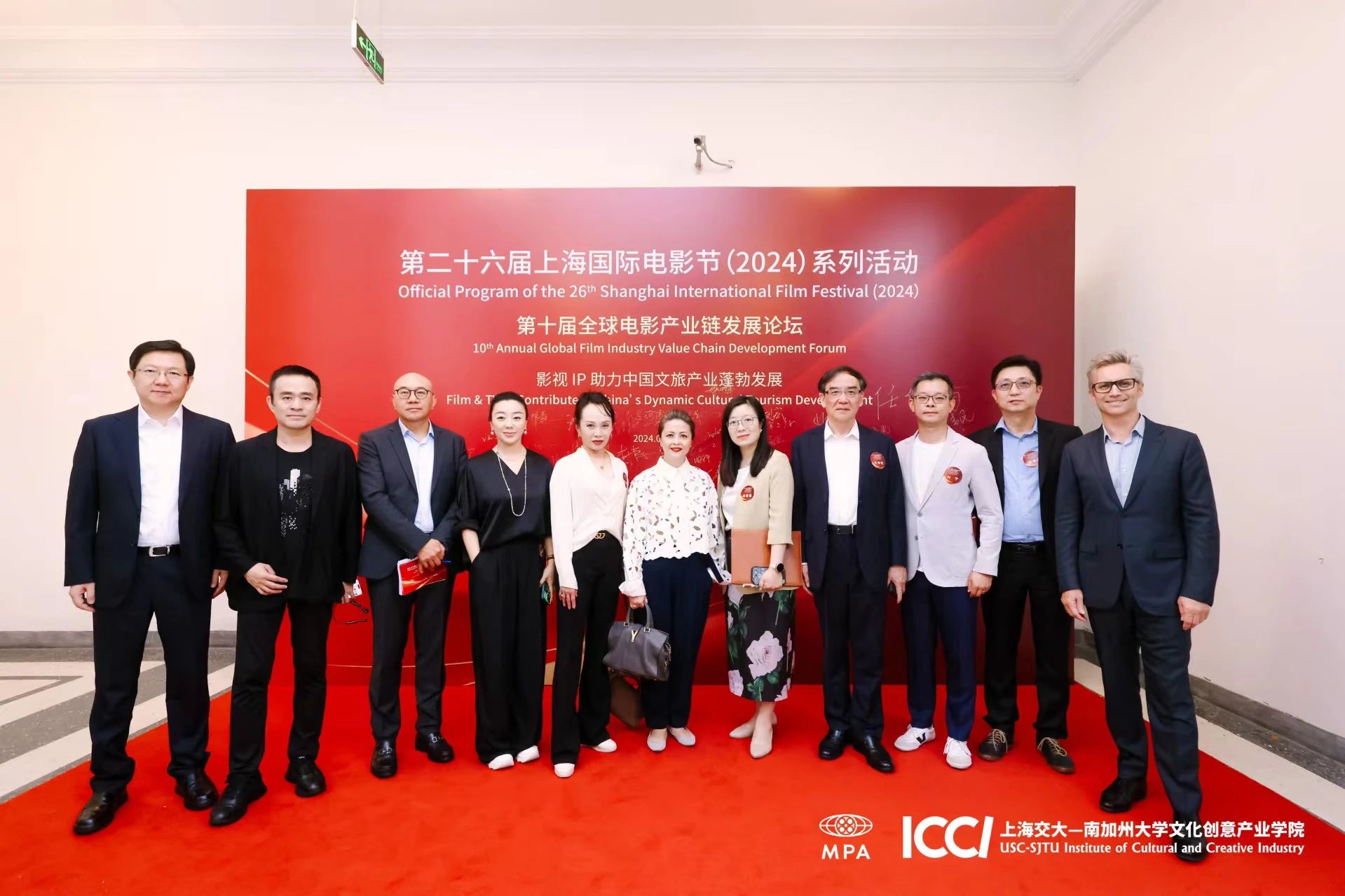
On June 22, the 10th Annual Global Film Industry Value Chain Development Forum, as an event of the 26th Shanghai International Film Festival, was held at the Engineering Hall of Shanghai Jiao Tong University's Xuhui campus. This event, jointly organized by USC-SJTU Institute of Cultural and Creative Industry (ICCI) and the Motion Picture Association (MPA), gathered renowned filmmakers, industry professionals, and scholars from around the world. The forum focused on the theme "Film & TV IP Contribute to China’s Dynamic Cultural Tourism Development," exploring topics such as the development of global theme parks, cross-industry collaborations of film IP, and the synergistic growth of the film and cultural tourism sectors.
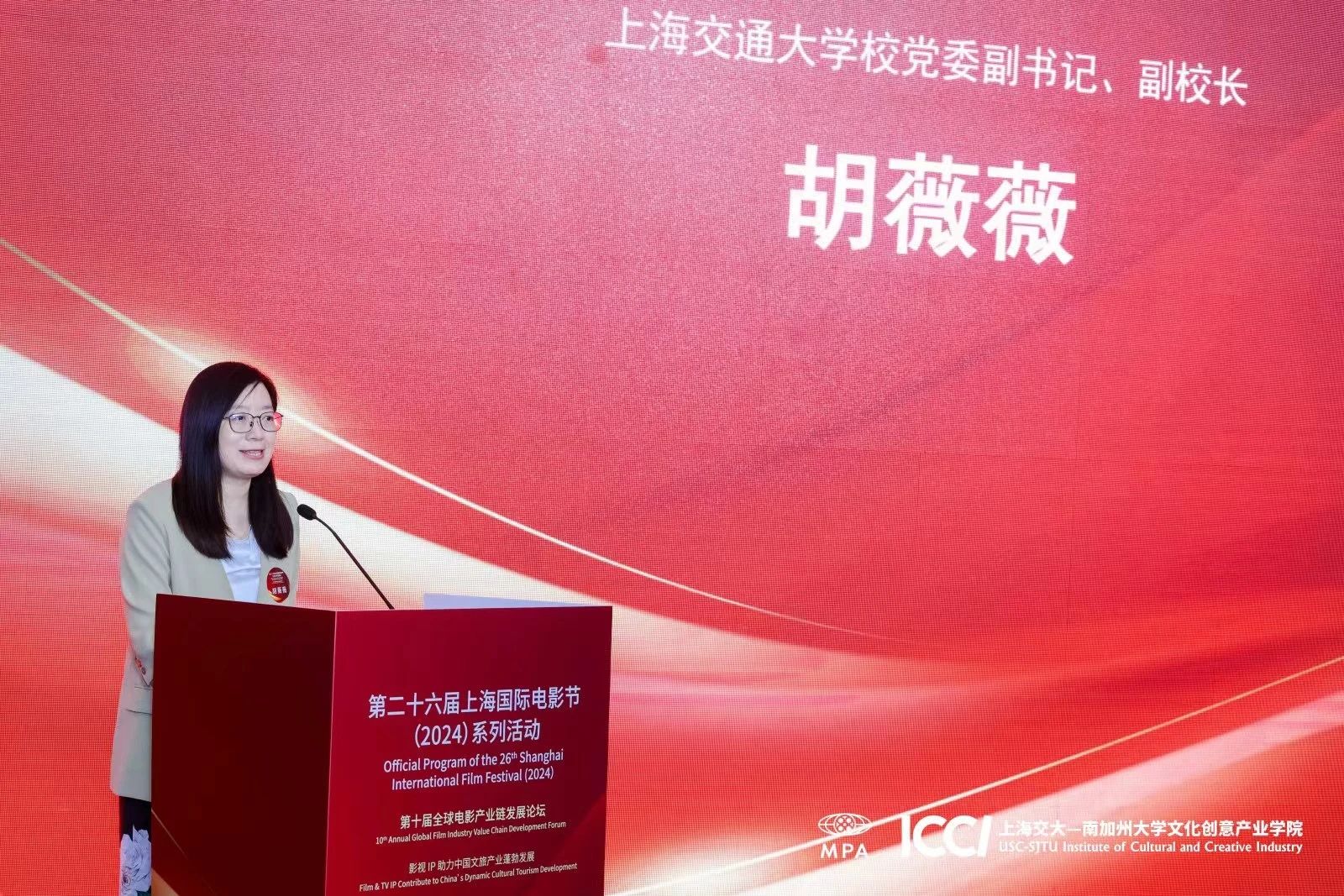
Weiwei HU, Deputy Party Secretary and Vice President of Shanghai Jiao Tong University
Weiwei HU warmly welcomed the guests and expressed sincere gratitude on behalf of the university. She highlighted that the forum, co-organized by ICCI and MPA, has been successfully held for ten sessions. Against the backdrop of innovative developments in China’s cultural tourism industry and the dual progress of the film industry, the university has been committed to providing intellectual support for talent cultivation and industry advancement. HU emphasized the university’s ongoing dedication to leveraging its academic strengths and technological innovations to contribute to the integration of cultural tourism and the film industry.
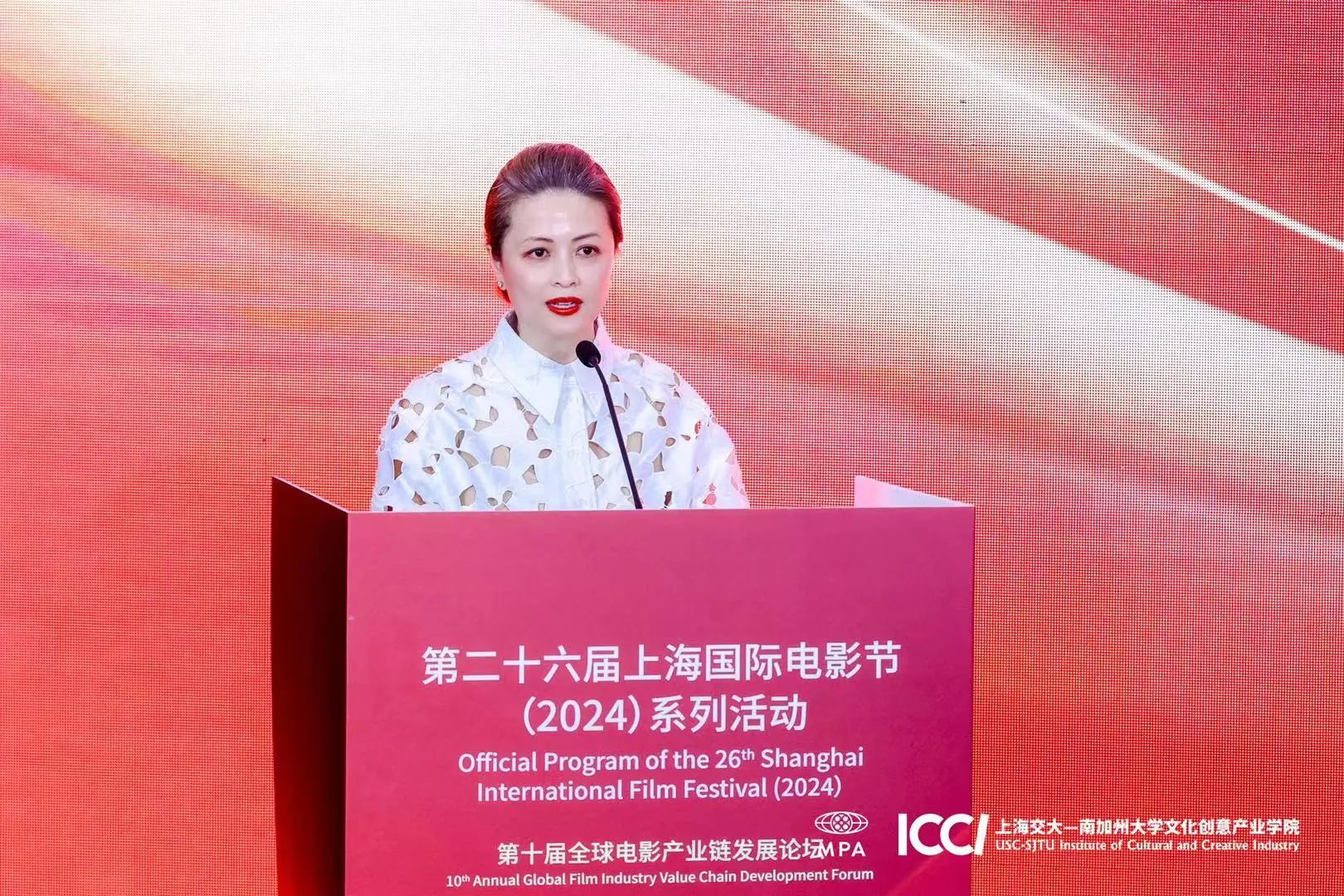
Belinda Lui, President of MPA Asia-Pacific
Belinda Lui praised the forum's role in fostering Sino-American film industry exchanges, stating that it has become a premier platform for leading film companies and filmmakers to share best practices and insights. The forum this year focused on maximizing the value of film IP and exploring new opportunities in cultural tourism , which would inject new momentum into the industry.
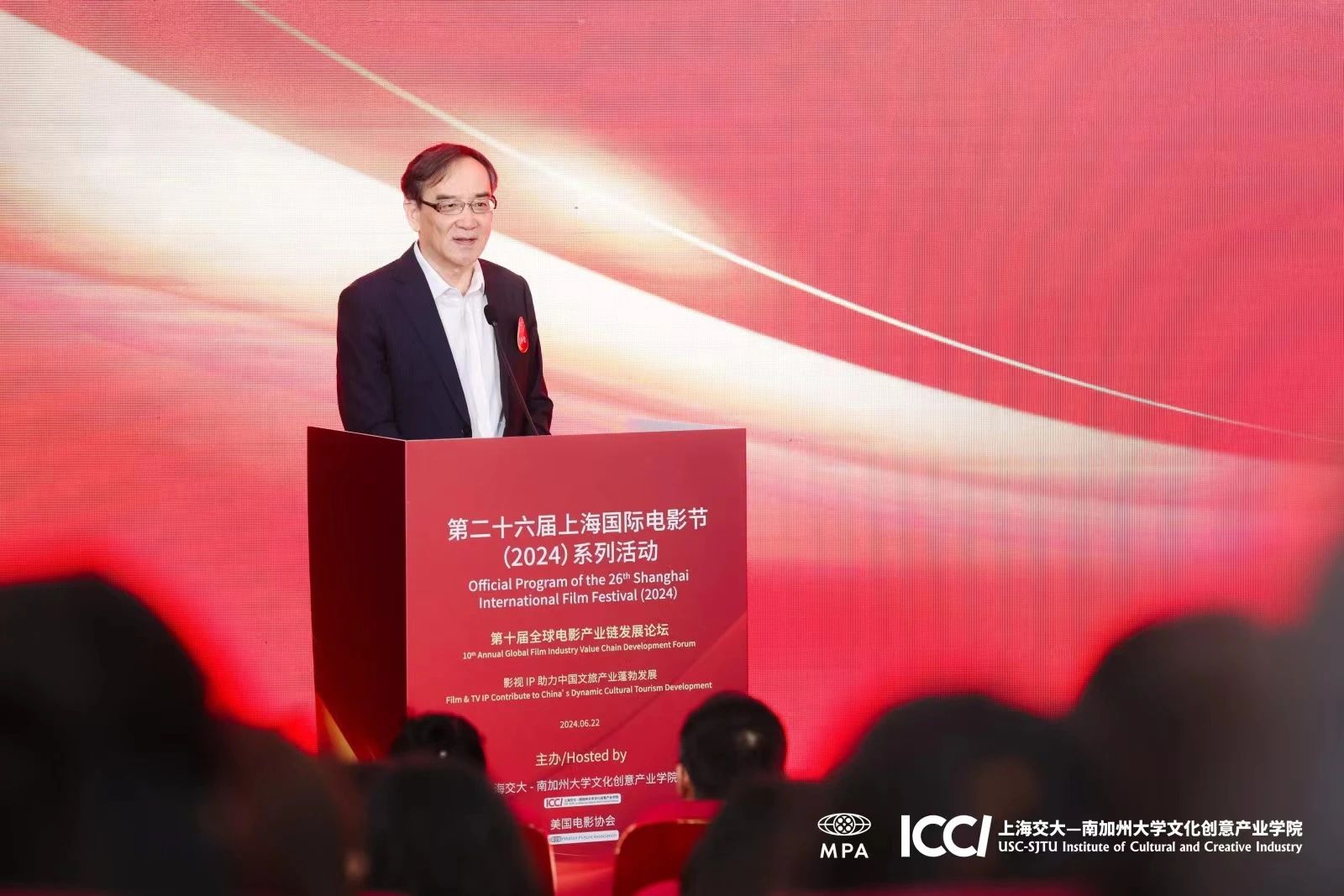
Zhonglun REN, Vice Chairman of the Shanghai Federation of Literary and Art Circles
Attending the forum for the tenth year, Zhonglun REN noted the creativity and vitality inherent in film IP. He emphasized Shanghai’s efforts to learn from and incorporate outstanding global films and IPs, urging Chinese filmmakers to seize industry changes and technological advancements to accelerate the integration of cultural tourism and industrial development in China.
Forum Theme 1: High-Concept Film IP and the Operational Model of Hollywood Theme Parks
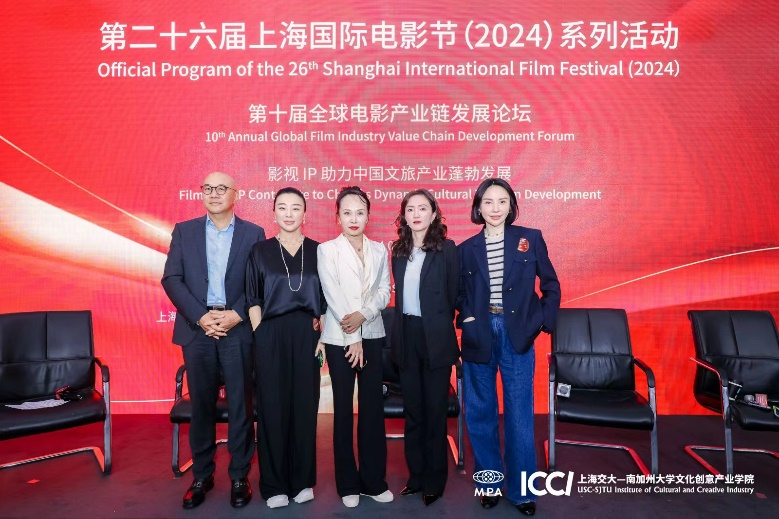
High-concept films, typically exemplified by Hollywood, are highly commercialized productions with broad market appeal, often featuring renowned directors and stars. As China's film industry advances, high-concept films and IP creation have profoundly impacted the development of the film industry value chain. The trend of mutual empowerment between film and cultural tourism has prompted Chinese filmmakers to rethink the operational model of high-concept film IP and theme parks.
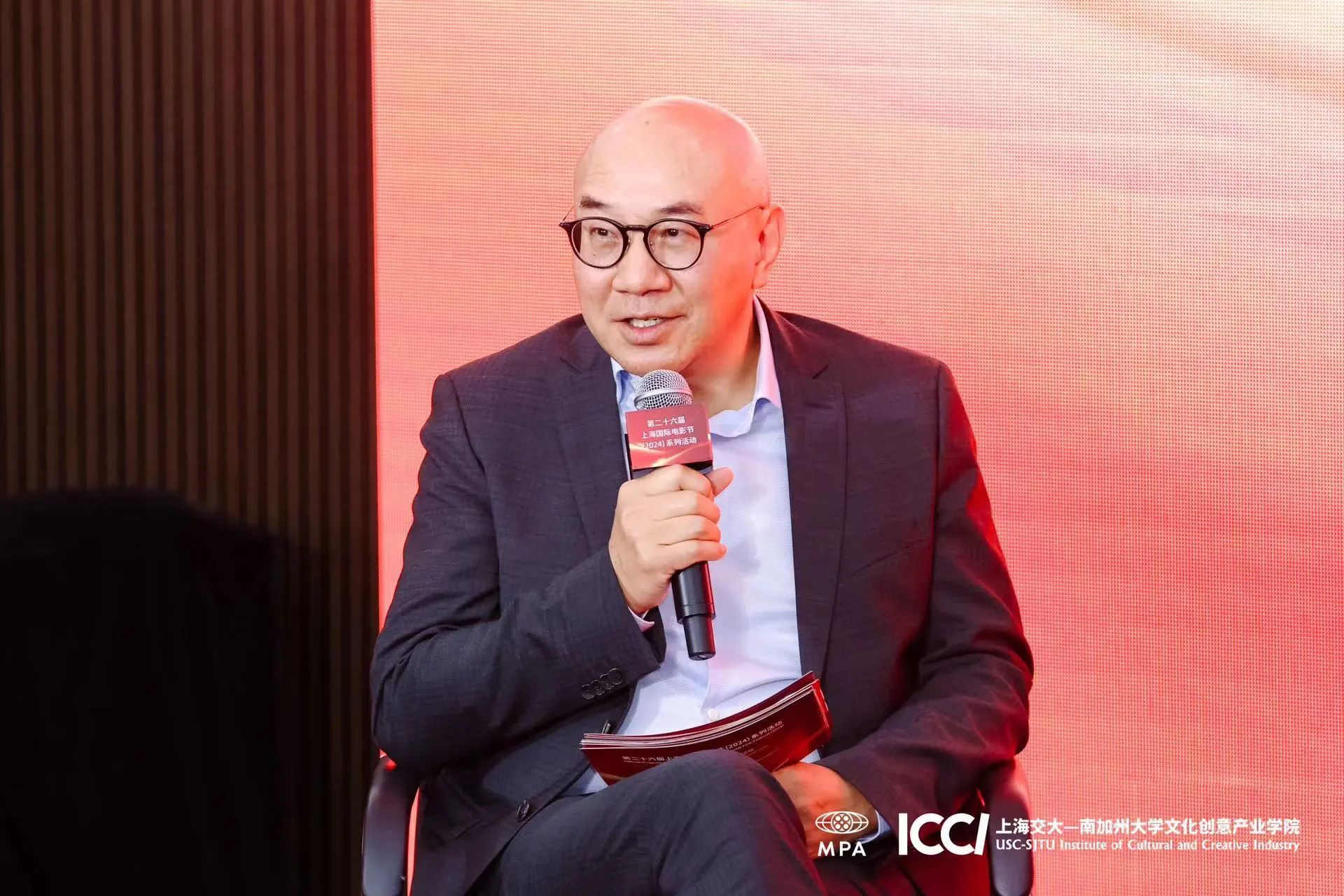
Wei FENG, Vice President of MPA Asia-Pacific and President of MPA China
Under Wei FENG's moderation, forum participants shared their insights on industry development and professional experiences.
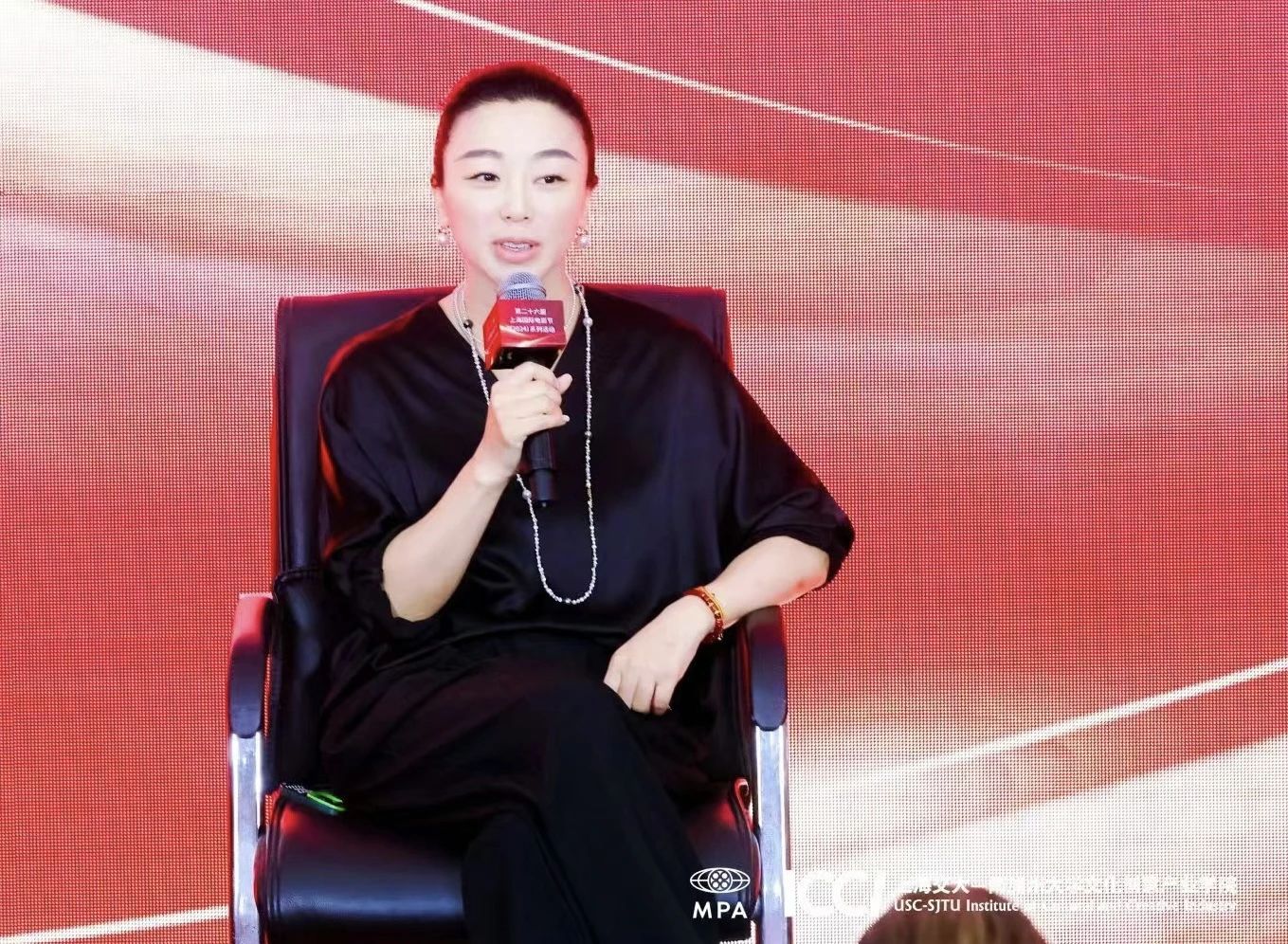
Jiaqi CHENG, President of Fosun Film & Media Group
Jiaqi CHENG emphasized that high-concept films were not solely commercial but defined by their marketing, transmission, and sustainability. Successful films rely on strong commercial operations, innovative concepts, excellent character development, and storytelling. She highlighted the importance of emotional connections between IP and audiences in creating lasting immersive experiences, stressing the need to understand local markets while learning from Hollywood’s IP operations.
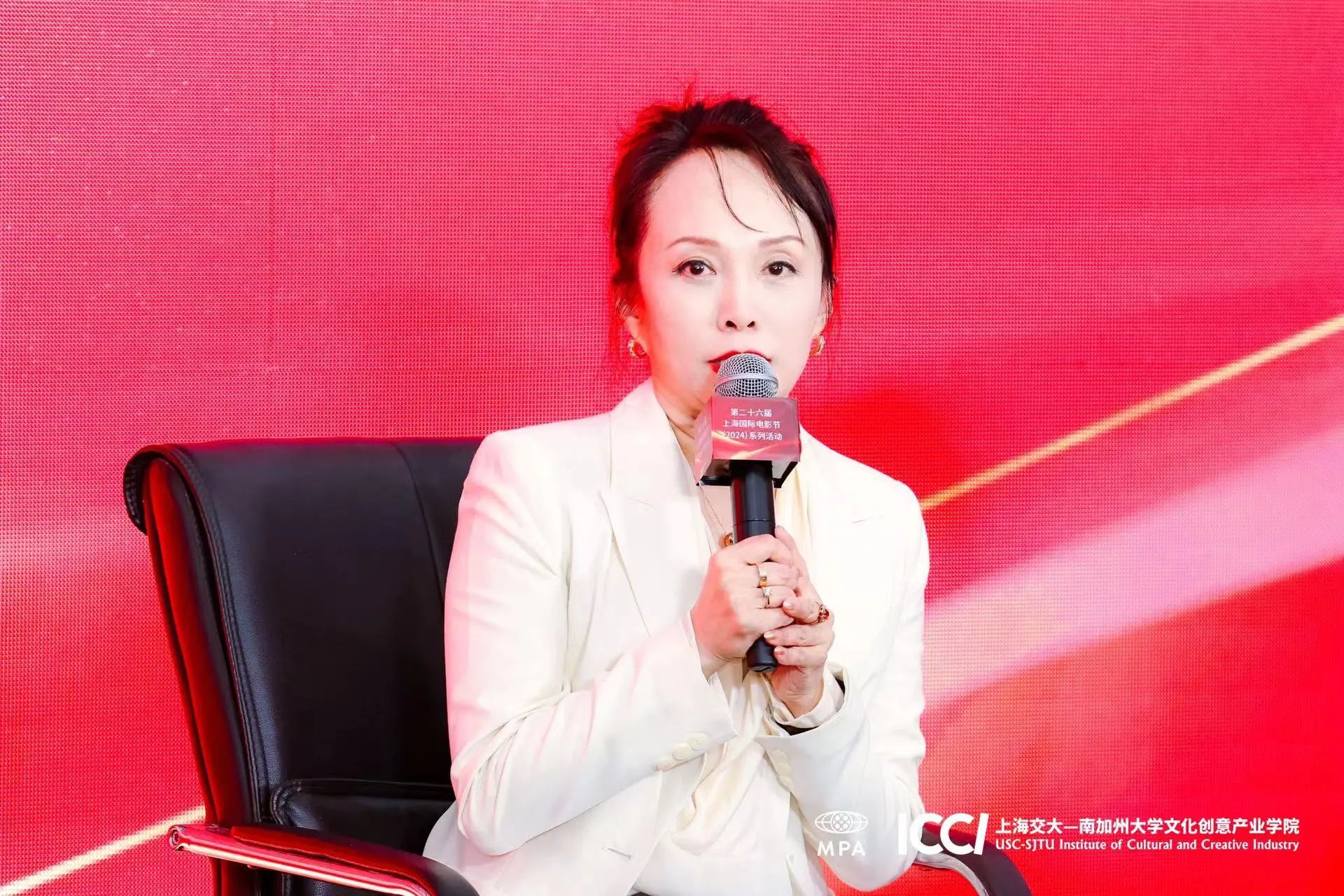
Zhixiang HUANG, Vice President of External Affairs, Universal Pictures China
Zhixiang HUANG described high-concept films as those breaking traditional boundaries with super-realistic creative concepts and narratives, possessing high commercial marketing potential. She believed successful film IP should explore value through cross-industry integration and extend the industry chain to theme parks and licensing, creating more commercial and cultural value, exemplified by the diverse development of IPs like "Jurassic Park" and "Minions." Cultural localization is crucial for successful IP and cultural tourism integration projects. Universal’s IP licensing and cultural tourism integration projects adapt to global cultural values and audience demands, focusing on emotional connections and technological applications to meet local cultural and marketing needs.

Ai YIN, General Manager of Paramount Pictures China
Ai YIN illustrated the concept of high-concept films with the "A Quiet Place" series, highlighting its unique creative narrative and audience engagement. She foresaw high-concept films continuing to drive market growth and enhance viewing experiences, stressing the importance of emotional connections and expansive world-building for successful IP.
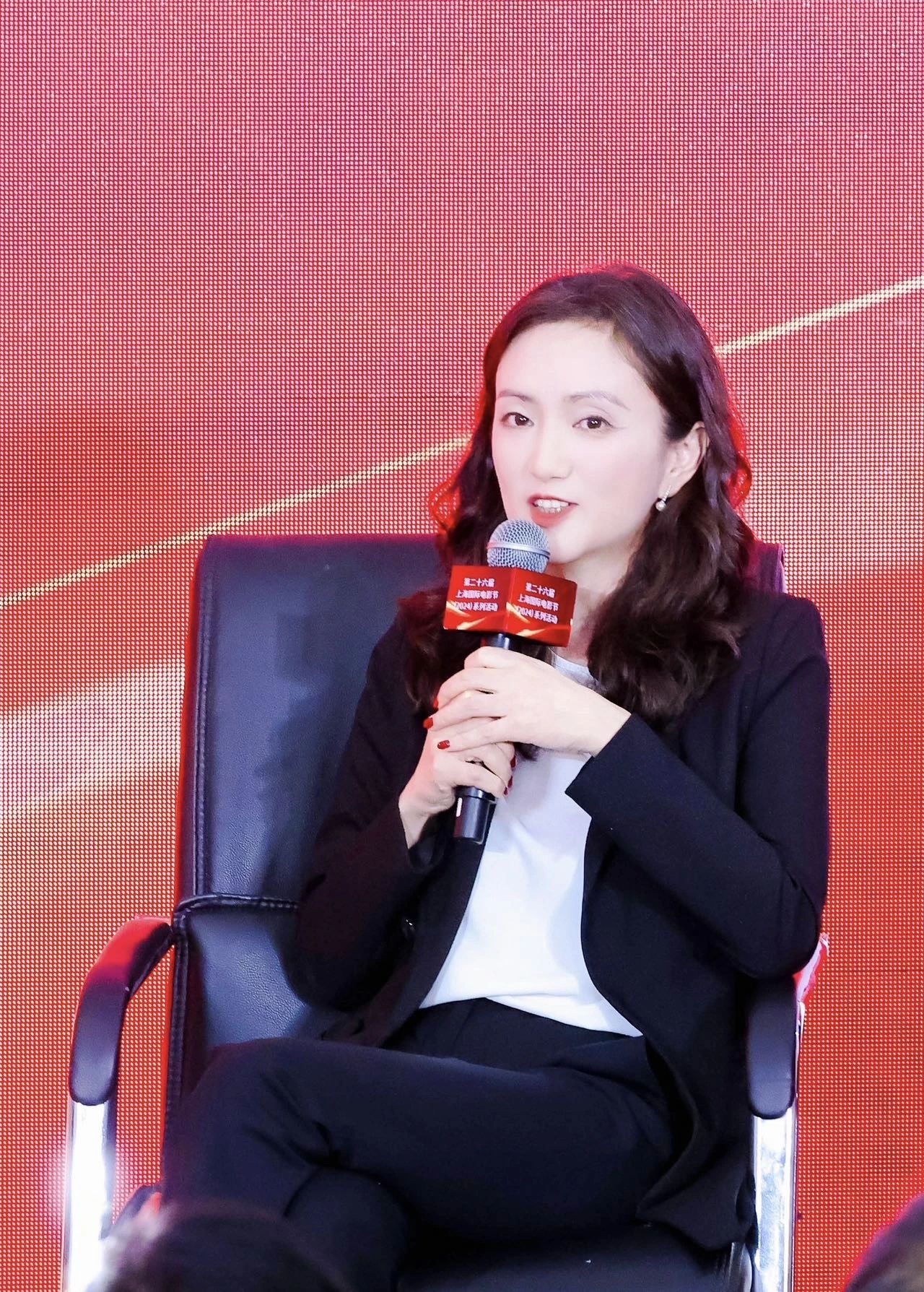
Xujun YING, Vice President of CMC Inc., President of Oriental DreamWorks
Xujun YING discussed Oriental DreamWorks' successful experiences in film content production and IP operation. She revealed that the Shanghai Legoland Resort, funded by CMC Inc., is set to open in 2025, integrating local cultural features into its construction. She emphasized that building theme parks requires substantial capital and resources, as well as strong government support, highlighting the unique case of Legoland's reverse approach from toys to films.
Forum Theme 2: High-Quality Film Content Boosting the Development of China’s Cultural Tourism Industry
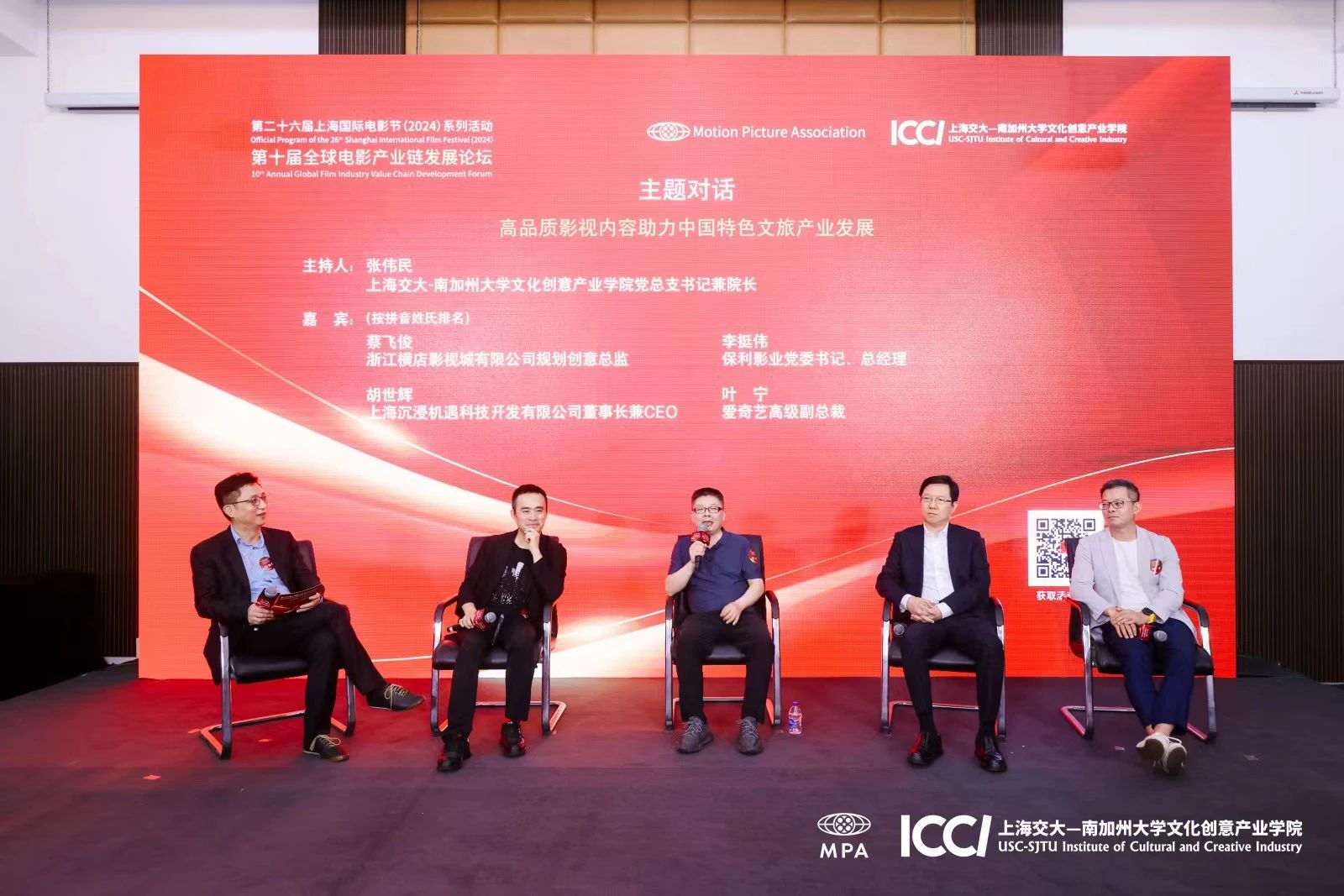
The success of the TV series "Blossoms Shanghai" early in 2024 turned Shanghai’s Peace Hotel and Huanghe Road into popular tourist spots, showcasing the positive impact of hit TV dramas on the cultural tourism industry. This mutual promotion between film and tourism enhances the visibility of series while highlighting the regional characteristics and cultural charm of cities, achieving a win-win symbiotic relationship.
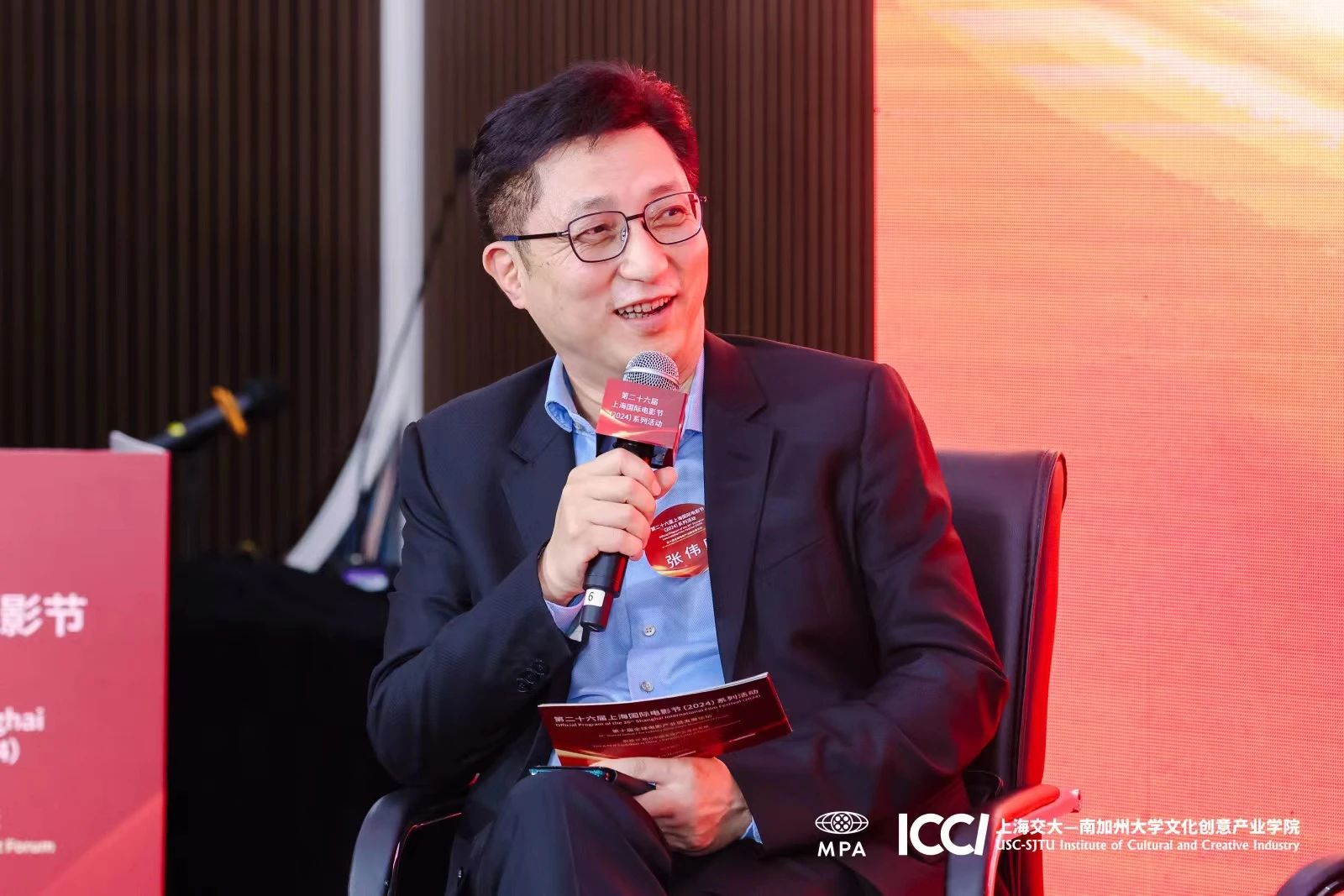
Weimin ZHANG, Dean of ICCI
Moderated by Weimin ZHANG, participants discussed how high-quality film content and IP can support the prosperity of the cultural and creative industry, focusing on the potential and development of "film + tourism" synergy.
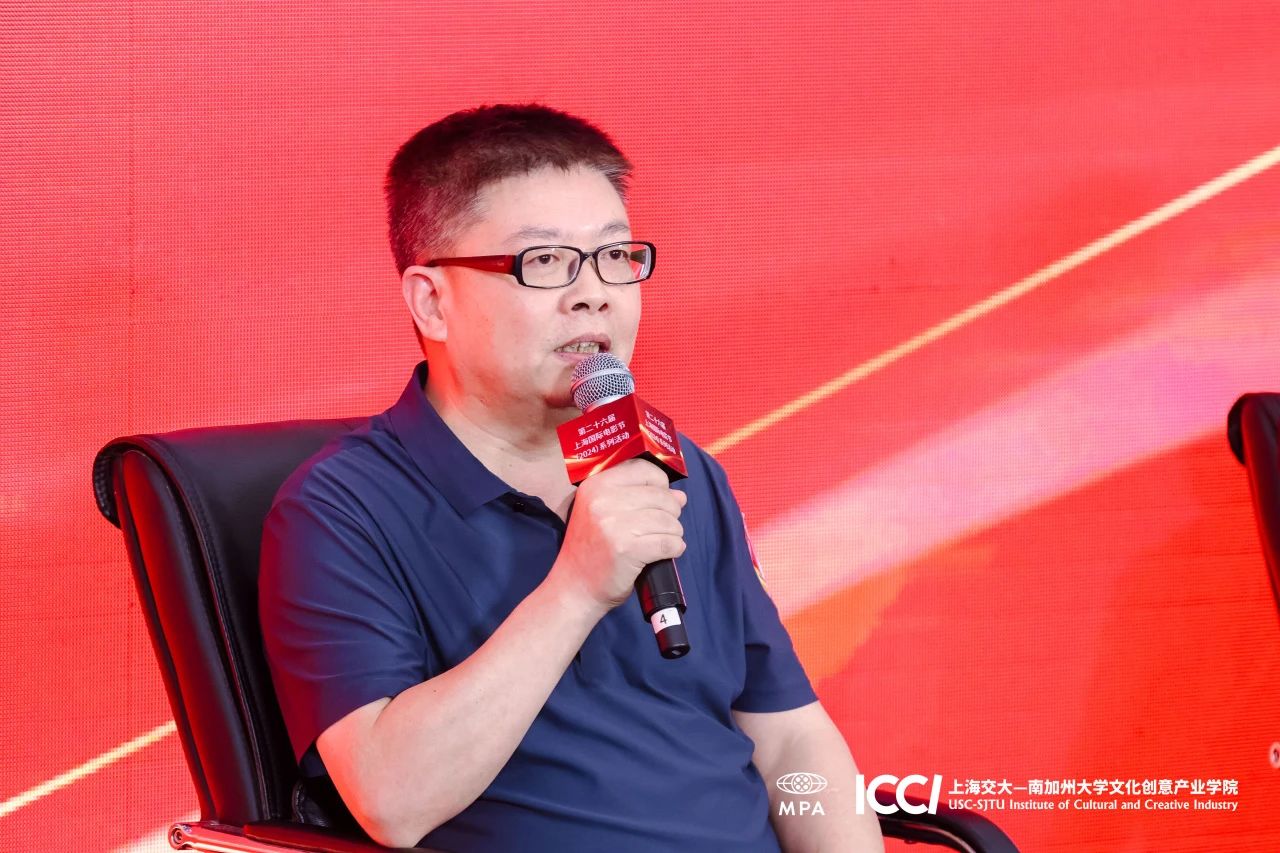
Feijun CAI, Planning Director of Hengdian World Studios
Feijun CAI, from Hengdian World Studios, emphasized the era of content supremacy in the cultural tourism industry, advocating for the creation of immersive, experiencable content to attract tourists. He highlighted Hengdian’s efforts to integrate film and tourism through innovative projects and immersive experiences.
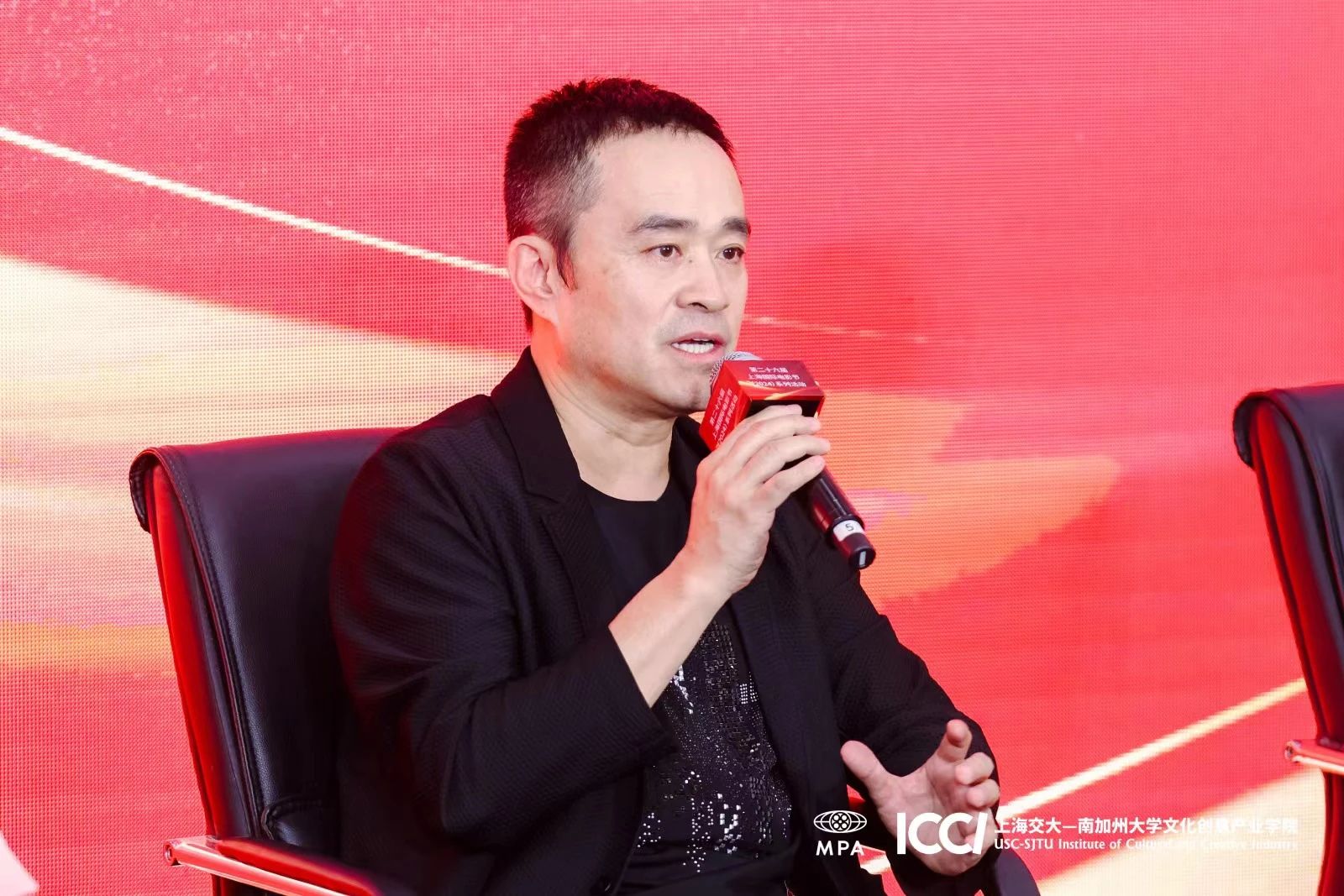
Shihui HU, Chairman and CEO of Shanghai Immersion Technology Development Co., Ltd.
Shihui HU discussed the VR industry’s new approach to cultural tourism, sharing insights from their immersive "Wind Rises in Luoyang" project. The team’s immersive projects aim to fully engage audiences in the storyline, making them feel part of the narrative rather than mere spectators. Discussing upcoming projects like "Cang Lan Jue" and other series extensions, he noted that mature IPs based on film and television can develop new business models. The film industry faces a vast blue ocean of opportunities and challenges, requiring collaboration across the industry and regions.
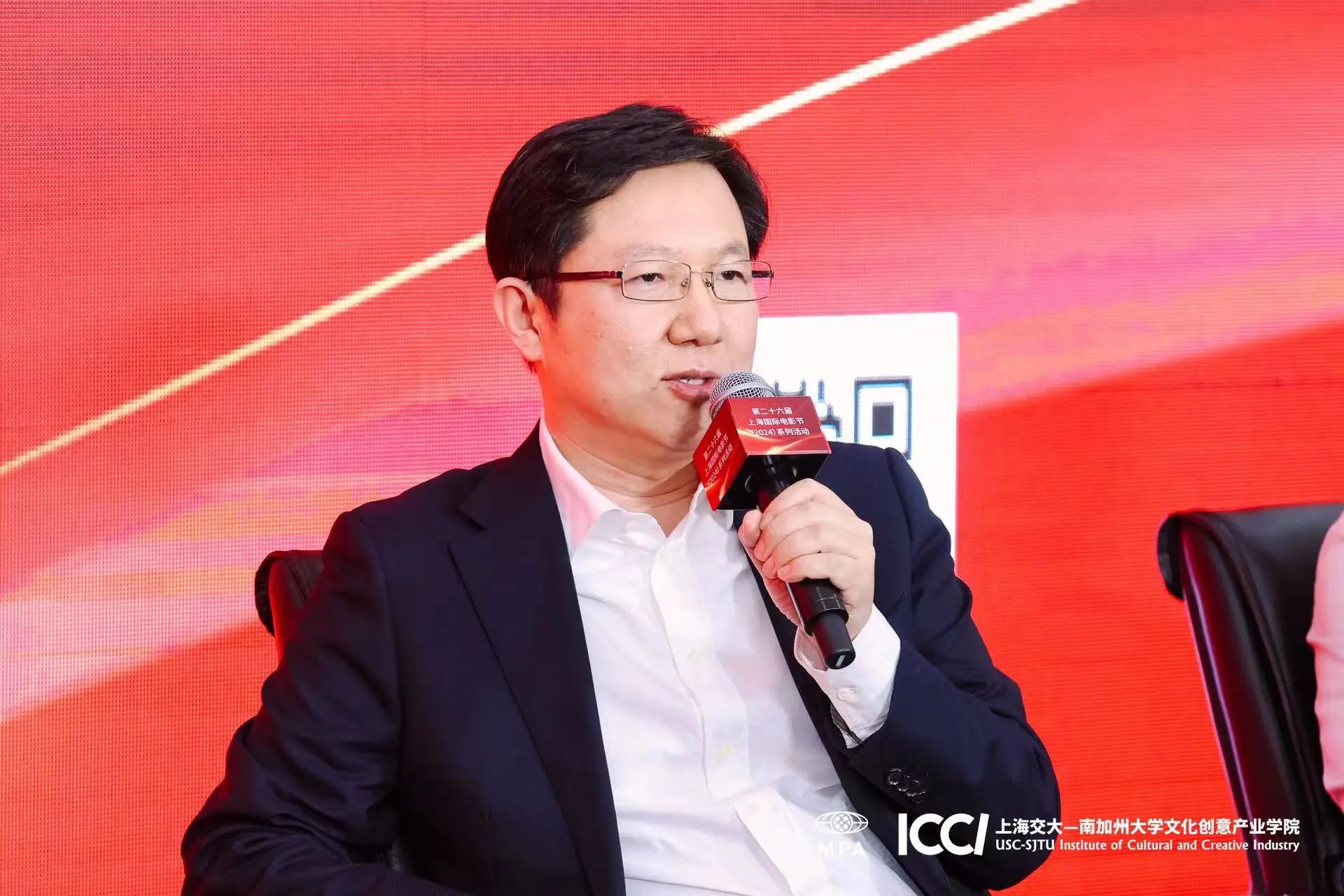
Tingwei LI, Party Secretary and General Manager of Poly Film
Tingwei LI emphasized that emotional and aesthetic appeal can drive the popularity of a work, city, or industry, advocating for the development of sustainable IP resources. He outlined Poly Film’s focus on content creation, channel development, and technology, including introducing new business models like movie-based escape rooms and developing digital human guides for tourism.
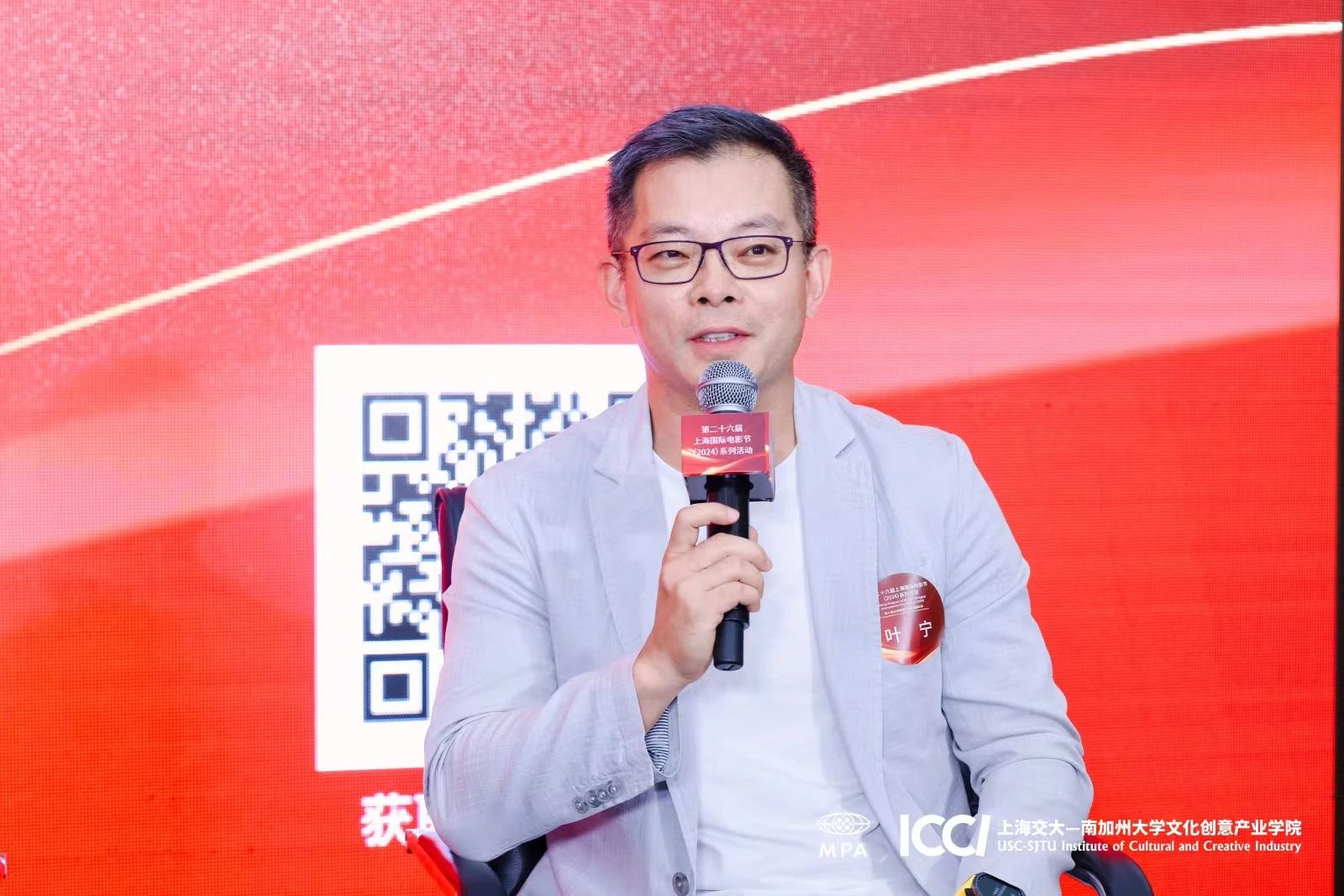
Ning YE, Senior Vice President of iQIYI
Ning YE highlighted the importance of establishing trust through emotional and scene connections between the cultural tourism industry and consumers. He emphasized the need to adapt to AI-era opportunities and challenges, creating immersive narratives that resonate with consumers.
Weimin ZHANG concluded that Shanghai Jiao Tong University’s strong engineering background and talent development contribute significantly to the integration and innovation of China’s film and cultural tourism industries. Beyond organizing forums, ICCI and MPA have conducted 38 sessions of the MPA-ICCI International Film Masterclass. The courses have featured Oscar winners and industry experts from the USC School of Cinematic Arts, NYU Tisch School of the Arts, AFI, and major international film associations and companies, who engage directly with Chinese film industry professionals, building an efficient and practical international exchange platform that continuously supports the development of China’s film industry.
Editor on Duty: Yan Cheng

